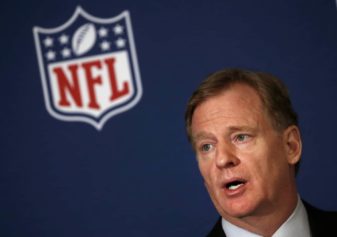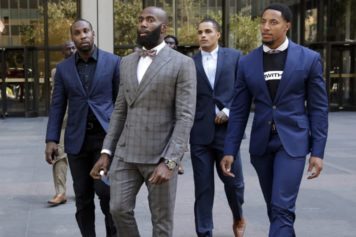Denver Broncos linebacker D.J. Williams, already facing a six-game NFL suspension for failing a drug test, was convicted of driving while ability-impaired, casting further doubt on the star player’s availability this season.
Williams was charged with driving under the influence, but the jury returned the lesser verdict after a trial that lasted less than a day. He also was convicted of driving without headlights, the offense that prompted police to stop him near downtown Denver about 3 a.m. on Nov. 12, 2010.
Williams, a defensive force for the Broncos, already is facing a six-game suspension in a separate case for failing a drug test.
He left court Wednesday with his attorney without commenting. He could be sentenced in six weeks, although it’s not clear how much jail time, if any, he might serve.
Williams is scheduled to be reinstated for the Broncos’ Oct. 28 game against the New Orleans Saints, although NFL commissioner Roger Goodell could punish him further for his conviction on Wednesday.
“It will be reviewed under our policies,” NFL spokesman Greg Aiello said.
The Broncos said the team was aware of the situation, and it will be subject to review under the league’s policies.
Prosecutors said Williams failed roadside sobriety tests during his traffic stop and refused to take a blood test to determine his possible alcohol level. He was taken to a detox facility.
During the trial in Denver District Court, Williams’ attorney Harvey Steinberg questioned how the Denver police officers handled the traffic stop and criticized them for not taking into account whether concussions or other head injuries could affect sobriety tests given to Williams.
Steinberg peppered the officers during questioning about how much they remembered from the night of the traffic stop and called their testimony a “moving bullet.”
He said one officer said after Williams had been taken into custody that he didn’t notice slurred speech and that Williams appeared to be walking fine, contrary to what the arresting officer noted during sobriety tests.
“That’s the evidence that creates the doubt,” Steinberg told jurors during closing arguments.
Denver prosecutor Brian Dunn argued that Williams knew he was drunk and pointed to his refusal to take a blood test as evidence.
“I mean if you’re wrongly charged, isn’t that the easiest way to take care of things?” the prosecutor said.

